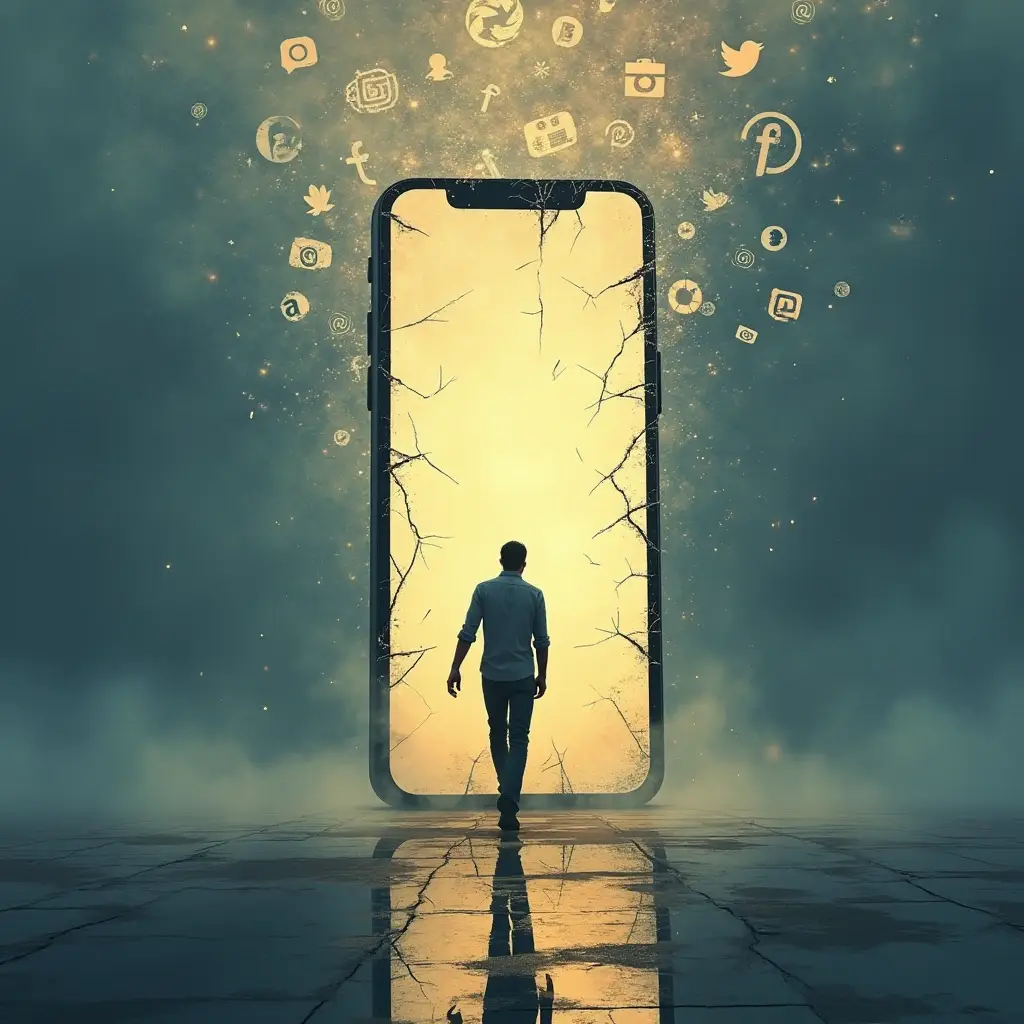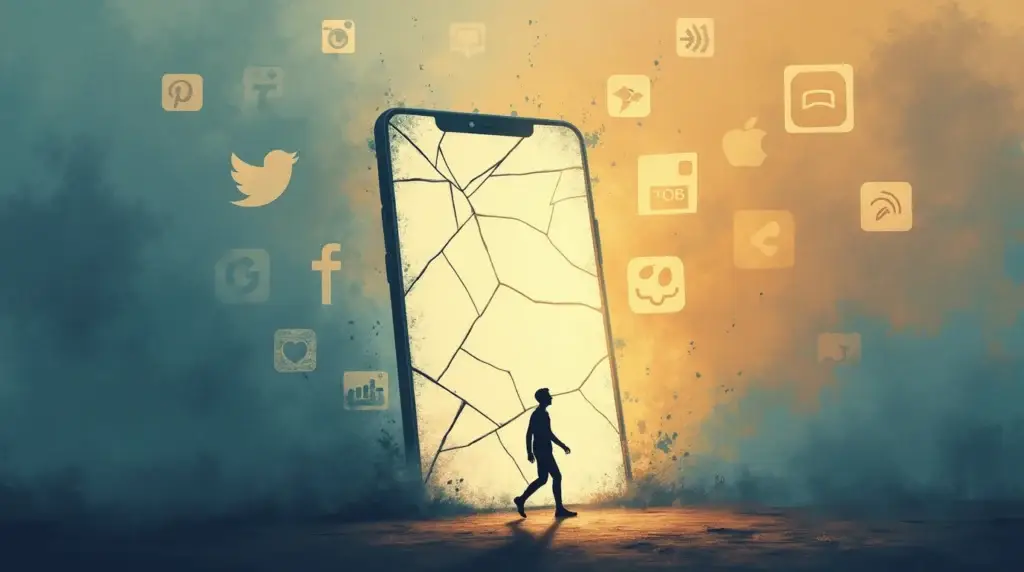In March of 2025, something unprecedented happened online over ten million people deleted their social media accounts in a matter of a week. This bold decision led to headlines declaring “The Great Digital Rebellion”, or even “Is Social Media Dead?” While their departure shocked social media platforms, the mass return soon overpowered their exodus once again leading to a discussion about the narcissistic relationship we have with TikTok, YouTube and Meta. Here’s the scoop of why users decided to leave and why it was impossible for them to stay absent.
The detox movement wasn’t born in a vacuum. Here’s what fueled the rebellion
Algorithmic Overload
Towards the end of the 2020s, users reported feeling ‘trapped’ in loops of hyper-personalized content, from doomscrolling climate disasters to out-of-control political outrage. “I felt like I was literally being hacked,” said Maya, 28, a former Instagrammer.

The Rise of Digital Fatigue
As users reported sensory exhaustion, “I could not distinguish what was real anymore,” stated Redditor @TechGhost_2025. This comes during the age of the augmented reality lenses, artificial intelligence personalties, and VR get-togethers taking center stage.

Privacy Panic

A report that was leaked disclosed that social applications had been employing neuro-sensing wearables such as the Apple MindBand in order to capture emotional states and personalize advertisements accordingly. Cue for anxiety for is here.
The “Authenticity Rebellion”
Gen Z and Alpha began rejecting polished, AI-generated content. A viral TikTok video declaring “We miss ugly selfies!” racked up 50M views, becoming the detox movement’s anthem.
The Detox Diaries: What Happened When They Quit
For the first week, detoxers reveled in their freedom. “I read books, called my mom, and finally slept 8 hours,” tweeted @DigitalRefugee. But cracks soon appeared:
FOMO 2.0: People missed out on IRL events organized exclusively through social platforms (think: pop-up AR concerts, NFT drops).
Career Fears: Freelancers and creators saw incomes plummet. “My brand deals died overnight,” admitted lifestyle influencer Lena Ko.
The Loneliness Epidemic: Younger users, especially, struggled to connect. “Group chats are dead. My friends only use TikTok DMs,” said 19-year-old college student Ryan.
Worst of all? The replacement apps flopped. “Ethical” platforms like MindfulGram and ChillChat were called “boring AF” by teens, while Substack newsletters overwhelmed users with “homework vibes.”
Why They Came Crawling Back
By Week 3, the return wave began. Here’s what pulled users back:
Social Media’s “Glow-Up”
Platforms rolled out emergency features to win back trust:“Dumb Mode”: A toggle to disable AI curation, reverting feeds to chronological posts.
Neuro-Off Switches: Opt out buttons for emotion tracking ads.
Analog Aesthetics: Filters that make photos look like 2008 flip-phone pics (huge with nostalgia stans).
FOMO Wins Again
A-list celebs like Timothée Chalamet and Zendaya hosted “Return Parties” on MetaVerse, teasing exclusive content for reactivated accounts.The Meme Black Market
Quitters admitted they couldn’t survive without meme culture. “I tried to explain ‘Skibidi Toilet 2.0’ to my therapist. She didn’t get it,” confessed Reddit user @DetoxFail.The Rise of “Guilt-Free” Socializing
Apps introduced “Wellness Warnings” (e.g., “You’ve hit your 15-min doomscroll limit!”) and paid users to take breaks, framing returns as “balanced” rather than addictive.
The Bigger Picture: What This Means for the Future
The detox movement revealed a harsh truth: we’re trapped in a digital codependency. As Dr. Alicia Chu, a Stanford neurotech ethicist, explains: “Social media isn’t just ‘apps’ anymore, it’s the fabric of modern community. Quitting is like refusing to use roads.”
Yet the rebellion wasn’t futile. Users now demand transparency, control, and “uglier” digital spaces. As one returning TikToker posted: “I’m back, but this time I’m muting every influencer who uses AI eyeliner.”

The cycle of quit-and-return proves social media is the “cigarette of our generation”: we know it’s bad, but we can’t quit. Or can we? The next detox wave is already predicted for June 2025